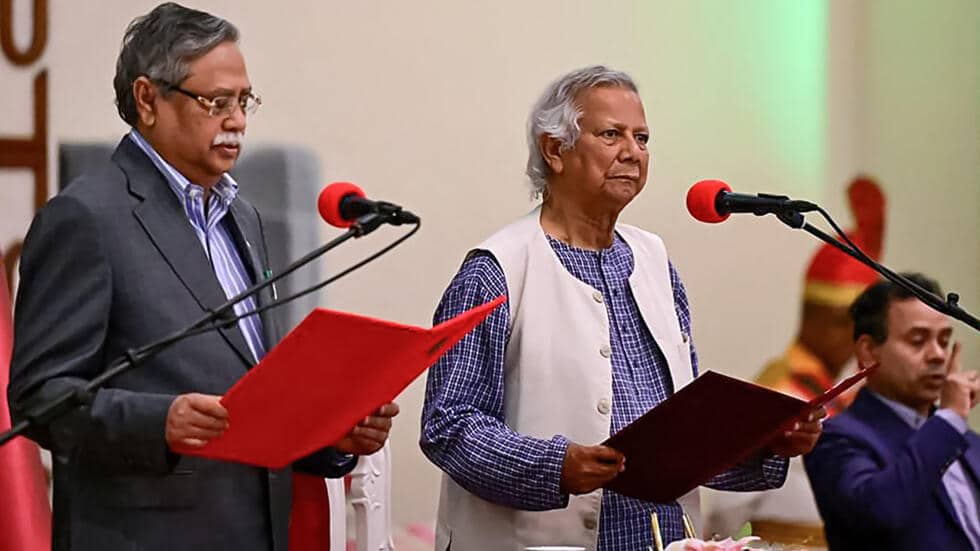Nobel Laureate Muhammad Yunus Acquitted in Graft Case Amid Political Unrest in Bangladesh
Yunus Cleared of Corruption Charges, Faces Immediate Challenges in Stabilizing a Nation in Turmoil
Nobel Prize-winning economist Muhammad Yunus has been acquitted in a graft case by a special court in Dhaka, just days after being sworn in as the head of Bangladesh’s interim government. Yunus, alongside 13 others, was cleared of all charges in the case brought by the nation’s Anti-Corruption Commission, a verdict that could have seen him face life imprisonment if found guilty.
The acquittal, comes amid a turbulent period in Bangladesh’s political landscape. Yunus, known globally for pioneering microfinance, was thrust into political leadership following the ouster of Prime Minister Sheikh Hasina. His appointment as the chief adviser to the interim government, with prime ministerial powers, marks his first foray into governance, a role that has sparked both hope and uncertainty among Bangladesh’s 170 million citizens.
Prior to his swearing-in, Yunus was also acquitted in a separate labor violation case, where he had been sentenced to six months in jail. Human rights advocates have labeled both cases as politically motivated, a sentiment echoed by many of Yunus's supporters who view the legal challenges as attempts to undermine his newfound political influence.
As he steps into his new role, Yunus has immediately faced the challenge of addressing a surge in violence against minority communities in the predominantly Muslim country. Over the weekend, Yunus and his advisory council engaged in discussions with representatives of religious minorities, including Hindus, who have been the targets of over 200 attacks across 52 districts since Hasina’s departure.
“We are committed to finding ways to resolve these heinous attacks,” Yunus stated, emphasizing the need for calm and protection of all citizens, regardless of their religious affiliation. His words came as minority Hindu groups continued to stage rallies demanding justice and security.
The unrest has also affected law enforcement, with police recently ending a strike after a stern ultimatum from Home Ministry head Sakhawat Hussain. Officers were ordered to return to work by Thursday or face job termination, a move seen as crucial to restoring public order amid the ongoing violence.
International observers, including Human Rights Watch, have expressed deep concern over the deteriorating situation for minorities in Bangladesh. The organization stressed the urgent need for stability and protection of vulnerable communities.
In a significant development, Yunus publicly commended the students who led the protests that culminated in the collapse of Hasina’s government. "There is no doubt... because of the student-led revolution the whole government collapsed," Yunus said during a meeting with the student leaders on Sunday night. He praised their efforts as "absolutely unparalleled" and acknowledged that their push was a decisive factor in his decision to lead the interim administration.
As Bangladesh navigates this period of transition, all eyes are on Yunus, whose leadership will be pivotal in steering the nation towards stability and ensuring the protection of all its citizens.






